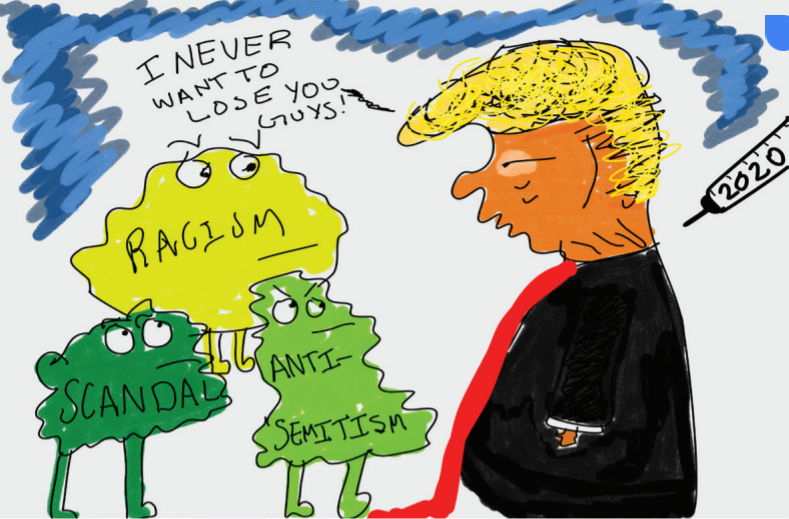March 5, 2019, Busboys and Poets — a bookstore and cafe in Washington — invited guests to “a town hall gathering on progressive policy moving forward.” Attendees included the Congressional Progressive Caucus, most notably freshman Congresswoman Ilhan Omar. Rather than advancing the discussion surrounding progressive issues, however, Omar’s most significant contribution to the event was an inflammatory injection of what many considered to be anti-Semitism. She said, “I want to talk about the political influence in this country that says it is okay to push for allegiance to a foreign country.”
Intended or not, Omar’s implication of Jewish dual-loyalty deeply hurt the Jewish community throughout the United States and sparked an debate about Omar’s character, anti-Semitism and how to address hate. The most concrete and concerning outcome of this discussion was the resolution against all “hateful expressions of intolerance,” which passed 407 to 23 on March 7. It did not mention Ilhan Omar.
This watered down resolution against hatred should concern all of us. When we choose not to shine light on what we know to be wrong, we risk becoming numb to people’s pain. Some believe that Omar is an Antisemite — a view some support by pointing to her 2012 tweet that “Israel has hypnotized the world, may Allah awaken the people and help them see the evil doings of Israel” and a recent comment that support for Israel in the US Congress is “all about the Benjamins.” Others believe, as Speaker of the House Nancy Pelosi does, that Omar’s words weren not “intended” as anti-Semitic. Regardless on where you stand, we can all recognize that her comments were hurtful.
The way we confront hate reveals the true nature of how we treat the most vulnerable members of our society. Somali-American Ilhan Omar, the first naturalized citizen from Africa and one of the first Muslim women elected to Congress, ought to understand the pain caused by accusing someone of having dual loyalty to two countries and the importance of calling out hatred clearly and directly. In fact, in Omar’s defense, it is important to call out hate directed against her and the Muslim community. She has faced death threats, assasination plots and a recent poster that falsely connected Omar to the 9/11 terrorist attacks. Each of these actions is hateful and should be condemened — as should Omar’s words.
Instead, 407 of our representatices have chosen to take a stand and defend Omar with a resolution against all hate. It is simply not specific enough. We see this in “all lives matter” in response to Black Lives Matter, in Trump’s “there are some very fine people on both sides” in regard to white natonalist protests. “All hate is bad” in response to Jew-hate reflects the same generalizing. Such statements are political responses to hate; they ring hollow, lack pungency and serve only to dilute and spin our focus from the issue that is front and center. We should not accept them, and neither should our representatives.
With this in mind, I applaud the 23 Senators who refused to bow to the pressure and vote for a resolution that in condemning all hate, facilitated Ilhan Omar’s hate. I challenge the rest of our representatives, and all of my readers, to confront hate — not with death threats or evil posters, but by shining a light on it directly and calling it out by name.
